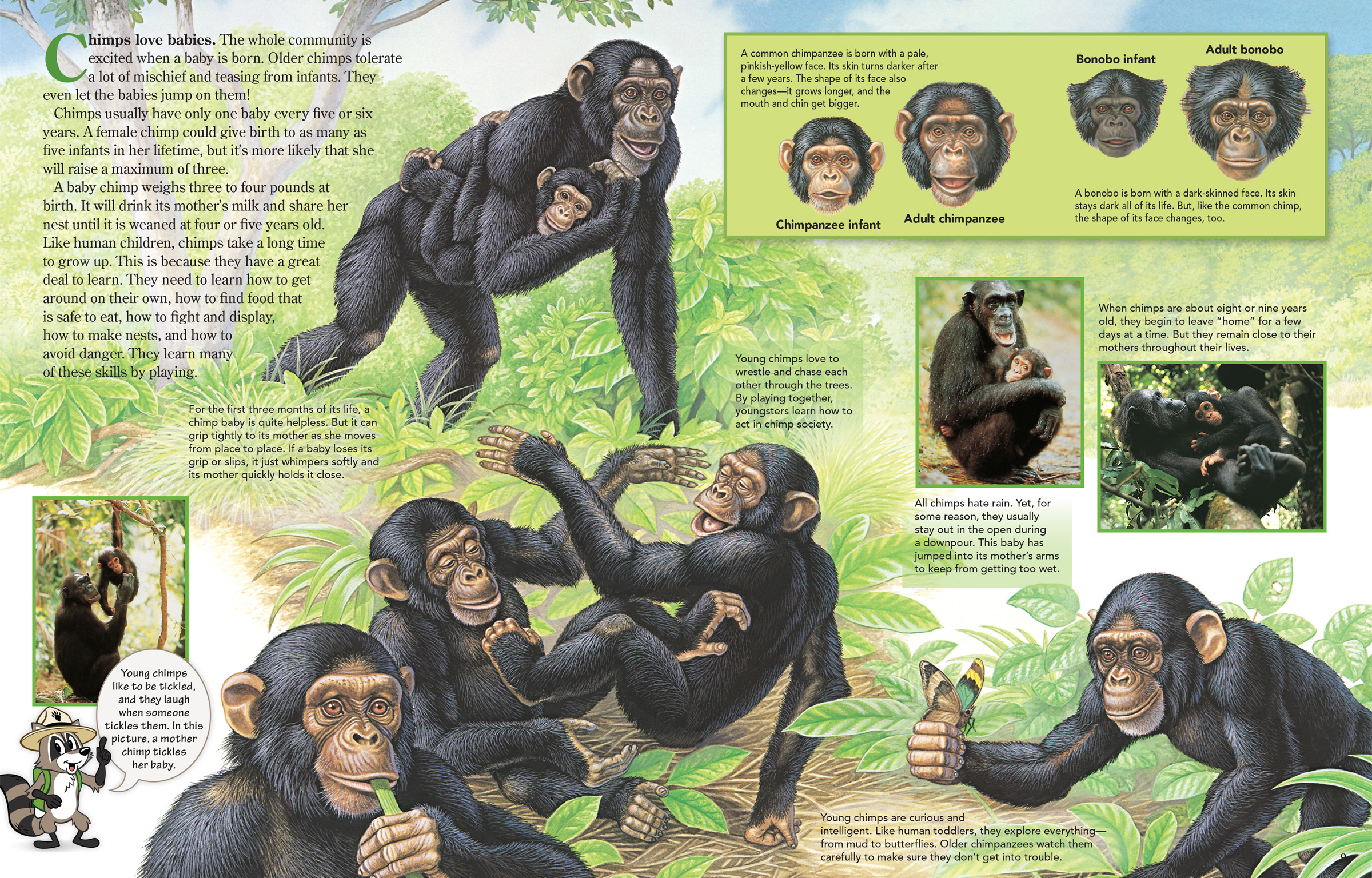
Chimps Love Babies
ByChimps love babies. The whole community is excited when a baby is born. Older chimps tolerate a lot of mischief and teasing from infants. They even let the babies jump on them!
Chimps usually have only one baby every five or six years. A female chimp could give birth to as many as five infants in her lifetime, but it’s more likely that she will raise a maximum of three.
A baby chimp weighs three to four pounds at birth. It will drink its mother’s milk and share her nest until it is weaned at four or five years old. Like human children, chimps take a long time to grow up. This is because they have a great deal to learn. They need to learn how to get around on their own, how to find food that is safe to eat, how to fight and display, how to make nests, and how to avoid danger. They learn many of these skills by playing.
For the first three months of its life, a chimp baby is quite helpless. But it can grip tightly to its mother as she moves from place to place. If a baby loses its grip or slips, it just whimpers softly and its mother quickly holds it close.
Young chimps like to be tickled, and they laugh when someone tickles them. In this picture, a mother chimp tickles her baby.
A common chimpanzee is born with a pale, pinkish-yellow face. Its skin turns darker after a few years. The shape of its face also changes—it grows longer, and the mouth and chin get bigger.
A bonobo is born with a dark-skinned face. Its skin stays dark all of its life. But, like the common chimp, the shape of its face changes, too.
Young chimps love to wrestle and chase each other through the trees. By playing together, youngsters learn how to act in chimp society.
All chimps hate rain. Yet, for some reason, they usually stay out in the open during a downpour. This baby has jumped into its mother’s arms to keep from getting too wet.
When chimps are about eight or nine years old, they begin to leave “home” for a few days at a time. But they remain close to their mothers throughout their lives.
Young chimps are curious and intelligent. Like human toddlers, they explore everything—from mud to butterflies. Older chimpanzees watch them carefully to make sure they don’t get into trouble.

